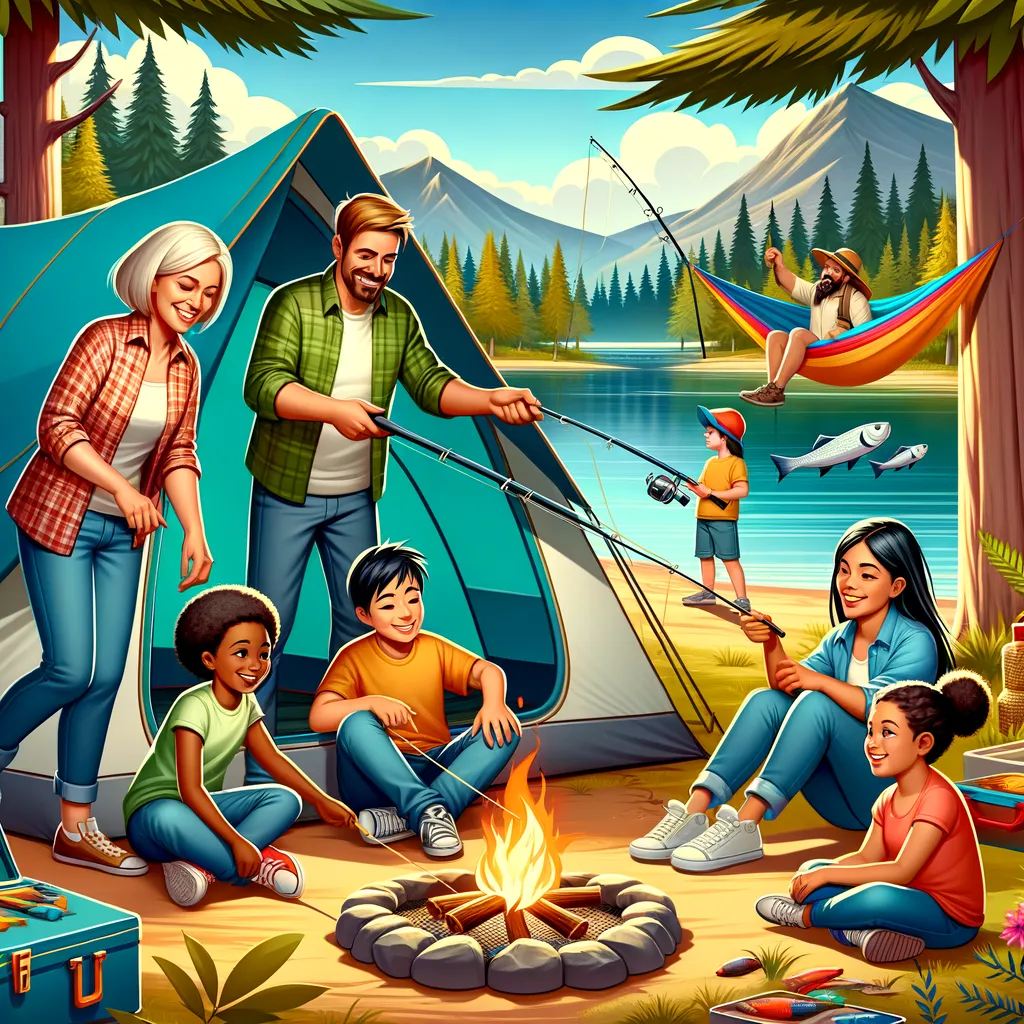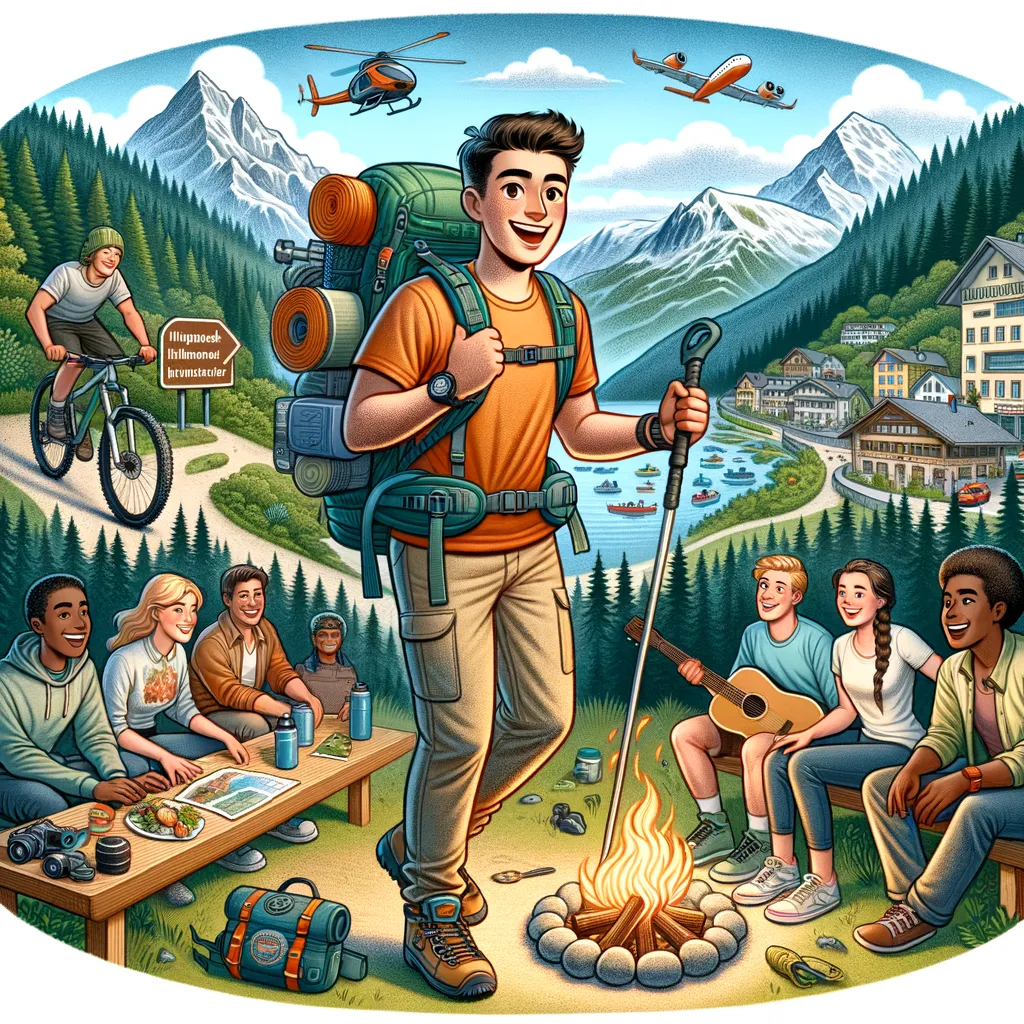How to Make Your Camping Trip Kid-Friendly: The Ultimate Guide for Parents
Welcome, adventurous families! Are you ready to explore the great outdoors with your little ones in tow but not sure how to make it fun and safe for them? Fear not! We’ve got you covered with this ultimate guide on how to make your camping trip kid-friendly, ensuring a memorable and enjoyable experience for parents and children alike.
1. Choose the Right Campsite
Selecting a kid-friendly campsite is the first step towards a successful camping adventure. Look for campsites with amenities such as playgrounds, easy access to bathrooms, and safe, shallow water bodies if swimming or water play is on your agenda. Additionally, consider campsites that offer family-friendly activities and educational programs about nature and wildlife. ReserveAmerica and Campsite Photos are excellent resources for finding the perfect spot.
2. Plan Fun Camping Activities
Keeping your kids engaged and entertained is key to a happy camping experience. Plan a mix of activities such as hiking, scavenger hunts, fishing, and storytelling around the campfire. Bring along games and crafts that are easy to pack and play outdoors. Remember, the goal is to introduce your kids to the wonders of nature while having fun.
3. Pack the Essentials (and Some Extras)
Packing for a camping trip with kids requires a bit more preparation. In addition to the standard camping gear, ensure you have everything to keep your children comfortable, safe, and entertained. This includes extra clothing, kid-friendly bug spray and sunscreen, a first-aid kit, plenty of snacks and water, and their favorite toys or comfort items. Don’t forget to pack a camera or use your phone to capture those priceless moments!
4. Practice Camping at Home
If this is your family’s first camping trip, doing a trial run in your backyard can be incredibly helpful. It gives kids a feel for what camping will be like and helps them get excited about the trip. Practice setting up the tent, sleeping in sleeping bags, and even cooking a meal outdoors if possible. This is also an excellent opportunity to test out your gear and make sure you haven’t forgotten anything important.
5. Teach Kids About Camping Safety
Safety should be a top priority on any camping trip. Teach your children about the importance of staying near the campsite, identifying poison ivy or oak, and the basics of wildlife safety. Make sure they understand the importance of staying hydrated and why they should always tell an adult where they are going. Equipping them with whistles and flashlights or headlamps is a good safety measure for older kids.
6. Include Kids in Camp Chores
Involving kids in camp chores not only teaches them valuable life skills but also helps them feel like a crucial part of the adventure. Assign age-appropriate tasks such as gathering kindling, setting the table, or even assisting with meal preparation under supervision. Acknowledge their contributions with praise to boost their confidence and enjoyment of the trip.

How to Make Your Camping Trip Kid-Friendly: The Ultimate Guide for Parents
Welcome, adventurous families! Are you ready to explore the great outdoors with your little ones in tow but not sure how to make it fun and safe for them? Fear not! We’ve got you covered with this ultimate guide on how to make your camping trip kid-friendly, ensuring a memorable and enjoyable experience for parents and children alike.
1. Choose the Right Campsite
Selecting a kid-friendly campsite is the first step towards a successful camping adventure. Look for campsites with amenities such as playgrounds, easy access to bathrooms, and safe, shallow water bodies if swimming or water play is on your agenda. Additionally, consider campsites that offer family-friendly activities and educational programs about nature and wildlife. ReserveAmerica and Campsite Photos are excellent resources for finding the perfect spot.
2. Plan Fun Camping Activities
Keeping your kids engaged and entertained is key to a happy camping experience. Plan a mix of activities such as hiking, scavenger hunts, fishing, and storytelling around the campfire. Bring along games and crafts that are easy to pack and play outdoors. Remember, the goal is to introduce your kids to the wonders of nature while having fun.
3. Pack the Essentials (and Some Extras)
Packing for a camping trip with kids requires a bit more preparation. In addition to the standard camping gear, ensure you have everything to keep your children comfortable, safe, and entertained. This includes extra clothing, kid-friendly bug spray and sunscreen, a first-aid kit, plenty of snacks and water, and their favorite toys or comfort items. Don’t forget to pack a camera or use your phone to capture those priceless moments!
4. Practice Camping at Home
If this is your family’s first camping trip, doing a trial run in your backyard can be incredibly helpful. It gives kids a feel for what camping will be like and helps them get excited about the trip. Practice setting up the tent, sleeping in sleeping bags, and even cooking a meal outdoors if possible. This is also an excellent opportunity to test out your gear and make sure you haven’t forgotten anything important.
5. Teach Kids About Camping Safety
Safety should be a top priority on any camping trip. Teach your children about the importance of staying near the campsite, identifying poison ivy or oak, and the basics of wildlife safety. Make sure they understand the importance of staying hydrated and why they should always tell an adult where they are going. Equipping them with whistles and flashlights or headlamps is a good safety measure for older kids.
6. Include Kids in Camp Chores
Involving kids in camp chores not only teaches them valuable life skills but also helps them feel like a crucial part of the adventure. Assign age-appropriate tasks such as gathering kindling, setting the table, or even assisting with meal preparation under supervision. Acknowledge their contributions with praise to boost their confidence and enjoyment of the trip.
7. Prepare for All Types of Weather
The weather can be unpredictable, and being prepared for anything is essential. Ensure you pack suitable clothing for your children, including waterproof gear, boots, warm layers, and sun hats. Explain the importance of dressing appropriately for different weather conditions to your kids. This not only keeps them protected but also turns it into a learning opportunity.
8. Bring Comforts from Home
Especially for younger children, having a familiar item from home can make all the difference in helping them adjust to the new environment. Whether it’s a beloved stuffed animal, pillow, or blanket, these comforts can help soothe nerves and make sleeping in a tent feel more secure.
9. Establish a Routine
While camping is a departure from the day-to-day routine, establishing a new, simple routine can help children feel more at ease. Set times for meals, adventures, and quiet time. This predictability helps children adapt to their new surroundings and makes the camping experience more enjoyable for everyone.
10. Stay Flexible and Embrace Nature
Finally, one of the most important tips for making your camping trip kid-friendly is to stay flexible. Not everything will go as planned, and that’s part of the adventure. Embrace the unexpected and use it as a chance to teach your kids about adaptability and the beauty of nature. The great outdoors is the perfect classroom for life’s most valuable lessons.
Making your camping trip kid-friendly requires a bit of preparation and a
Disclaimer
The articles available via our website provide general information only and we strongly urge readers to exercise caution and conduct their own thorough research and fact-checking. The information presented should not be taken as absolute truth, and, to the maximum extent permitted by law, we will not be held liable for any inaccuracies or errors in the content. It is essential for individuals to independently verify and validate the information before making any decisions or taking any actions based on the articles.



